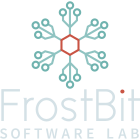As a software lab, FrostBit is not a traditional software development unit, although we have a web and mobile team in addition to the XR game team. These teams support each other in most projects in one way or another. The lab could be considered as a multidisciplinary operating environment.
Many examples of projects concerning the fields of Health, Mining or Forestry highlight the multidisciplinary actions in the lab, and one addition to this is the currently ongoing project “Towards Sustainable Tendering”. Through the implementation of a practical tool, the project seeks solutions at the level of the province of Lapland to minimize the carbon footprint of municipalities so that new ways of operating are also regionally profitable. To make this possible, a new way of thinking and procurement policy is needed among municipal decision-makers and entrepreneurs.
Ii’s municipality’s example of sustainable low-carbon procurement has even attracted the interest of foreign media, including the BBC. The municipality has invested in geothermal, solar electricity and wind power. The practices of the entire municipality starts even from a primary school level: with consumption savings, primary school children can raise money for a jointly decided purchases. Such a new way of thinking must therefore be instilled in other municipalities, decision-makers and citizens. Often, however, such a large price tag for large purchases seems to be a cost item that is difficult for the municipality to cover. At this point, we need to think about the payment period, when new jobs, tax revenues and margins from production convert large expenditures into income in the future. In addition, a sustainable society is increasingly more important for people today, and such municipalities appear to be pioneers in creating this “new image”.
The list of municipal decision-makers is not small, thus many factors must be take into consideration: choices are made in areas such as energy production, heating solutions, central kitchens operations and the food industry, sustainable construction and logistics solutions, which mentioned are the largest sources of carbon emissions in municipalities. Many projects in Lapland and throughout Finland aim to improve some of these areas, and many different partners with their needs and results are contributing to these projects. This leads to the question of how all these areas and the results of the projects can be used by the decision-makers in their development towards the goals that are also regulated by the EU goals?
The project Towards Sustainable Tendering aims to provide a tool for scalable demonstration of the impact of procurement from small businesses to provincial decision-makers. In order for the tool to work, considerable work has been invested in its design and even internationally recognized mathematicians are included in the project. In addition to retrieving background material for the tool, collaborators from various fields have been acquired from e.g. in energy, construction, transport optimization and local food-focused projects. The tool also needs a lot of users, which at times is challenging to approach from the point of view of entrepreneurs because of the Coronavirus-pandemic. Therefore, there is a strong focus on the communication and marketing actions about the project, which is established through many different channels. Thus, in addition to technological know-how, the implementation of the tool itself requires expertise, e.g. from an economic, agrological and energy point of view, and the successful outcome of the project provides a tool that can be taken to other parts of Finland and to the international level, where Lapland University of Applied Sciences is strongly increasing its project actions and gaining a variety of partners. The goals of Lapland University of Applied Sciences and the Lapland Association on the development of the Arctic region and green solutions are the driving force behind the project and the strong desire of the municipality of Kemijärvi to raise the profile of Eastern Lapland and the whole province.

The project’s website contains more detailed information about the project and upcoming events in the event section, as well as a project webinar that explains the issue in more detail.

Mika Uitto
Mika works as a Project Manager at the LapUAS and is currently leading the EU Green Deal related Towards Sustainable Tendering project. He is planning multidisciplinary international & national projects e.g. in healthcare, forestry, spaceweather, cultural heritage, environmental matters & industry including XR-content development, gamification & different software development with a touch of UX design. Mika participates in the lab's marketing, event planning & communications aims to enhance sustainable development goals and actions of Lapland UAS.

